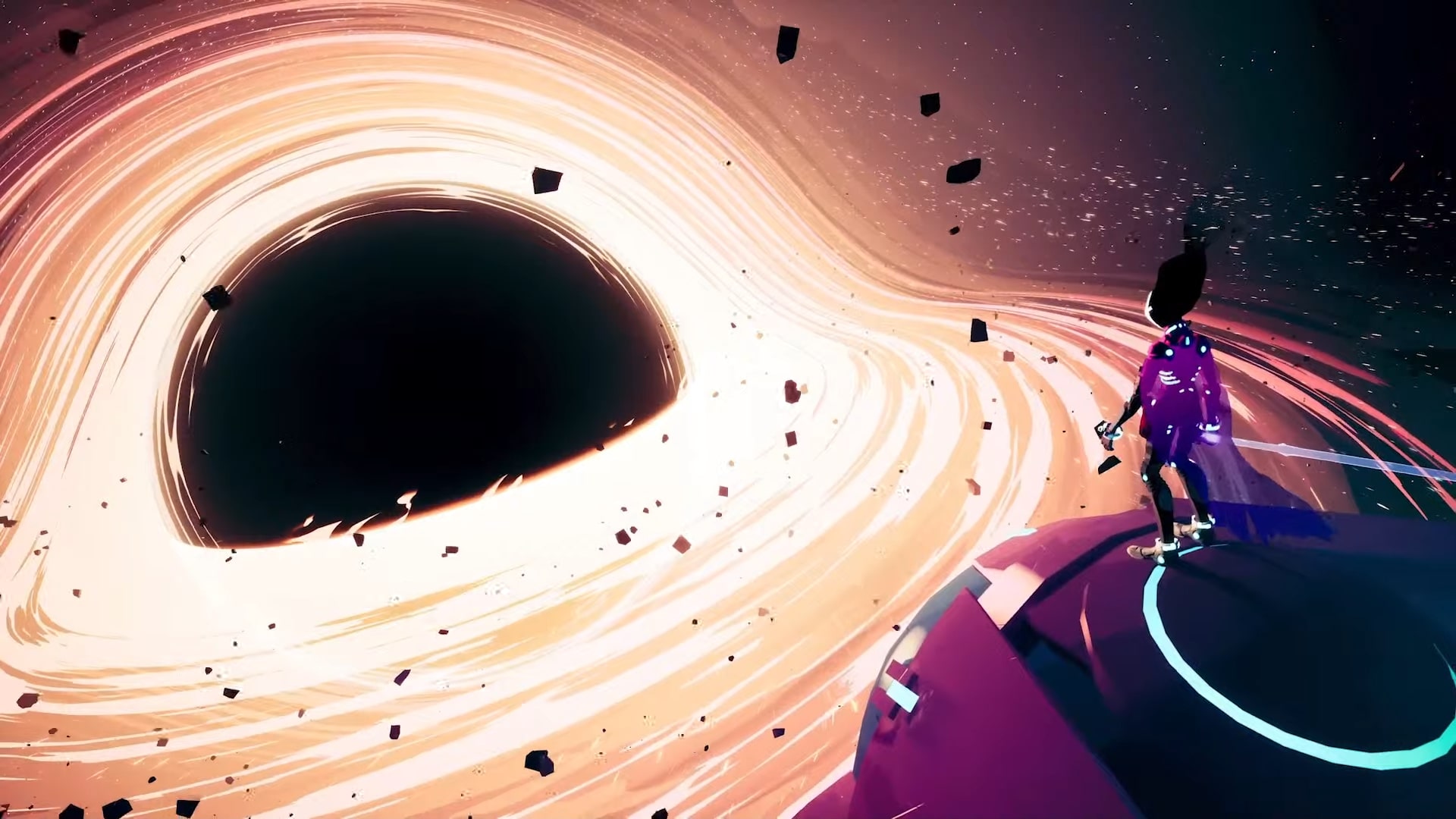GamesRadar+ Verdict
Solar Ash is a platforming playground that never loses steam, and it hides a memorable story of unfathomable tragedy.
Pros
- +
+ Spellbinding movement
- +
+ A world that grabs your eyes and doesn't let go
- +
+ Boss fights that truly earn the word 'epic'
Cons
- -
Collectible suits are disappointing
Why you can trust GamesRadar+
I'm increasingly convinced that movement-driven games aren't just my type of game; they're the best type of game. Demonstrably – mathematically, even. Because a game that turns the simple act of getting to point B into a constant delight, and then presents infinite points to get to, is always at its best. No dips, no clutter, just 100% uptime on the thing you signed up for.
I signed up for Solar Ash, the second game from Hyper Light Drifter developer Heart Machine, looking to skate elegantly on the clouds of a beautiful world, and that's exactly what I got. It's a third-person platformer that pushes its core skating mechanic to its technical and creative limits, and the result is a sublime chorus of double jumps, grind rails, bounce pads, collectibles, and momentum. What I didn't expect was for the wrapper on that straightforward idea to be so heavy and memorable. I didn't anticipate so many pitiable, endearing, and even charming characters ruminating fatalistically in a melancholic world sculpted from loss, or for that world's plight to hit so close to home. Solar Ash is simultaneously exactly what I was hoping for and also full of surprises, and it's one of my favorite games of the year.
Now this is fast travel
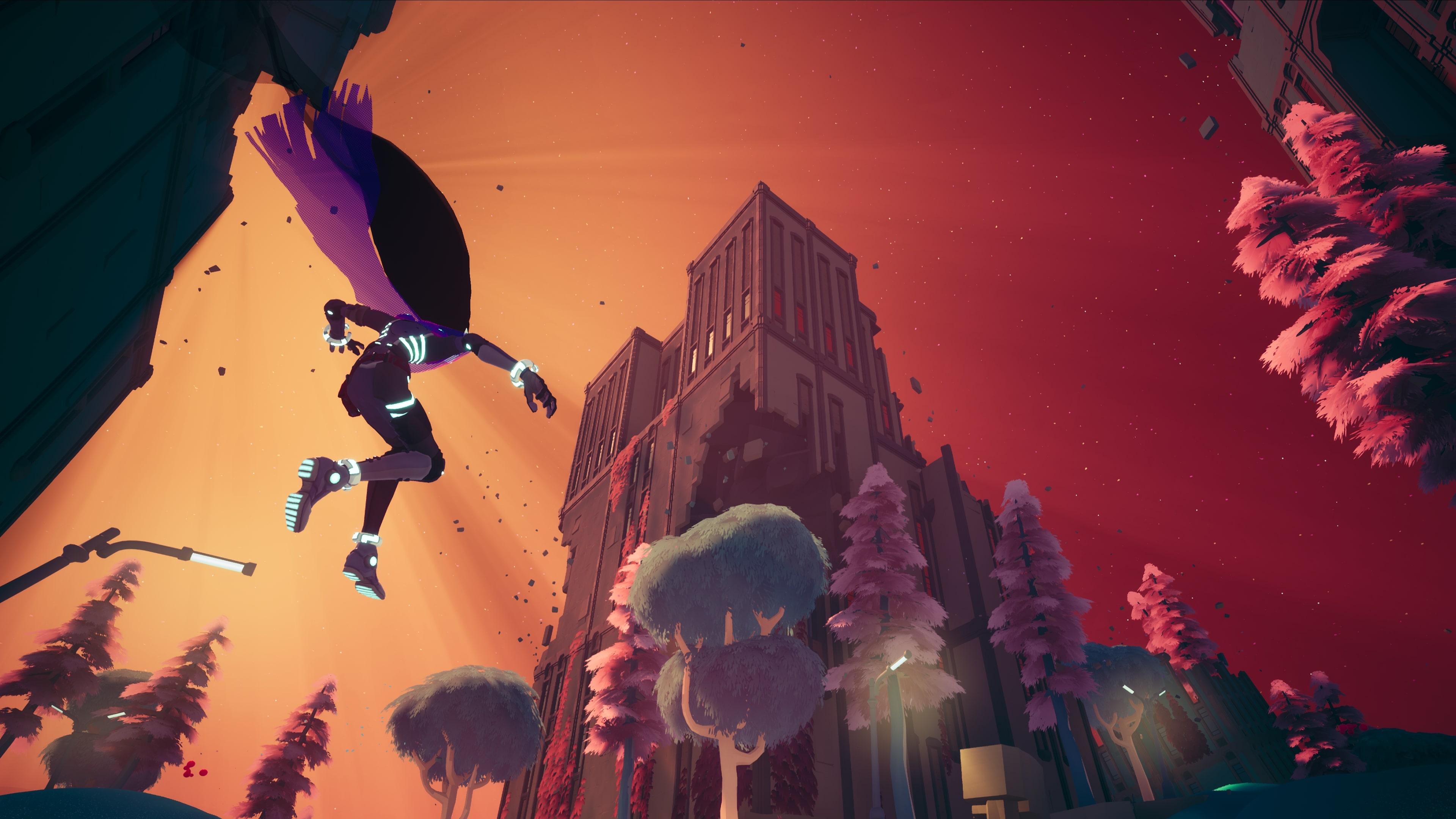
Solar Ash opens with our hero, Rei, quite literally dropping into the Ultravoid, a colossal black hole that will soon consume her home planet. Rei's one of several Voidrunners dispatched to the Ultravoid with the goal of halting its destruction, and we come to know her colleagues through audio logs hidden around the world, each log stored with a scrap of a new unlockable suit that enhances Rei's abilities in some way. Not that Rei needs any enhancements; you've got everything you could ever want from minute one.
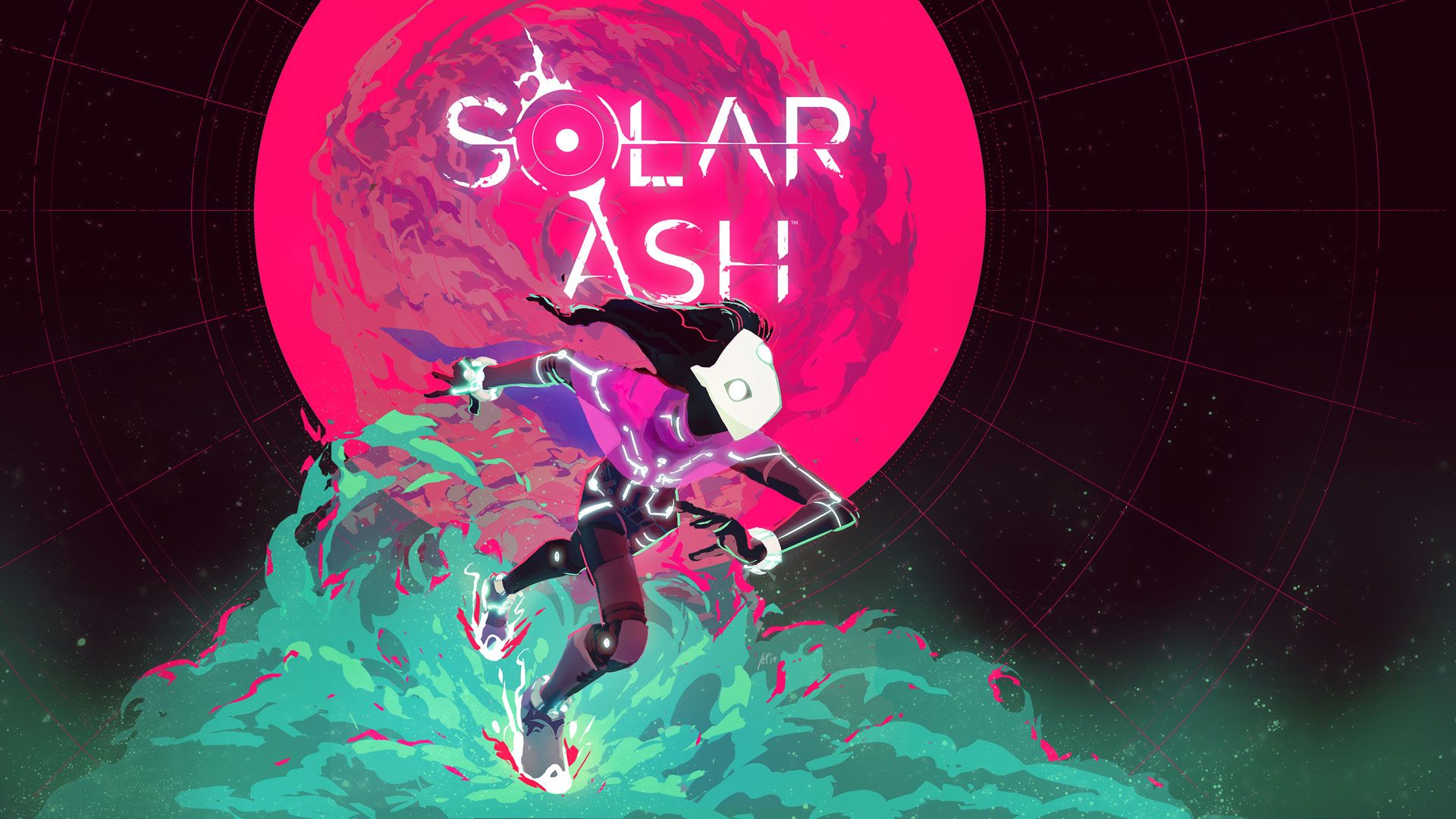
Release date: December 2, 2021
Platforms: PS5, PS4, PC
Developer: Heart Machine
Publisher: Annapurna Interactive
In the same way that a nice knife makes chopping vegetables downright addictive, Solar Ash makes cutting through clouds and gliding over platforms endlessly exhilarating. Rei moves with enchanting grace and explosive power. You're unstoppable. Boost to build momentum, double-jump off a ledge, grapple upward, and slow time at just the right moment to launch off an enemy and preserve your momentum. Take in the sights as you cruise along a grind rail, pop some plasma containers as they whiz by, then pirouette to a stop to scan the horizon for new markers and collectibles, or just new trails to blaze. Do whatever you want, as carefully or helter-skelter as you want, and bask in the flow state.
Fluid controls aside, the reason Solar Ash feels so good to play is because its world is so intelligently designed. It makes things look easy, which can only mean it was painstakingly made. Minor puzzles and light, one-button combat enhance movement rather than disrupting it, with different enemy types adding new challenges to traversal. Blobs and crystals of plasma, a currency used to increase your maximum life with help from the AI companion Cyd, draw your attention to key points in the world. Voidrunner caches are just hidden enough that you have to poke around, but visible enough that finding them never feels tedious. Everything was tailor-made to make the most of Rei's abilities while minimizing frustration, and it shows.
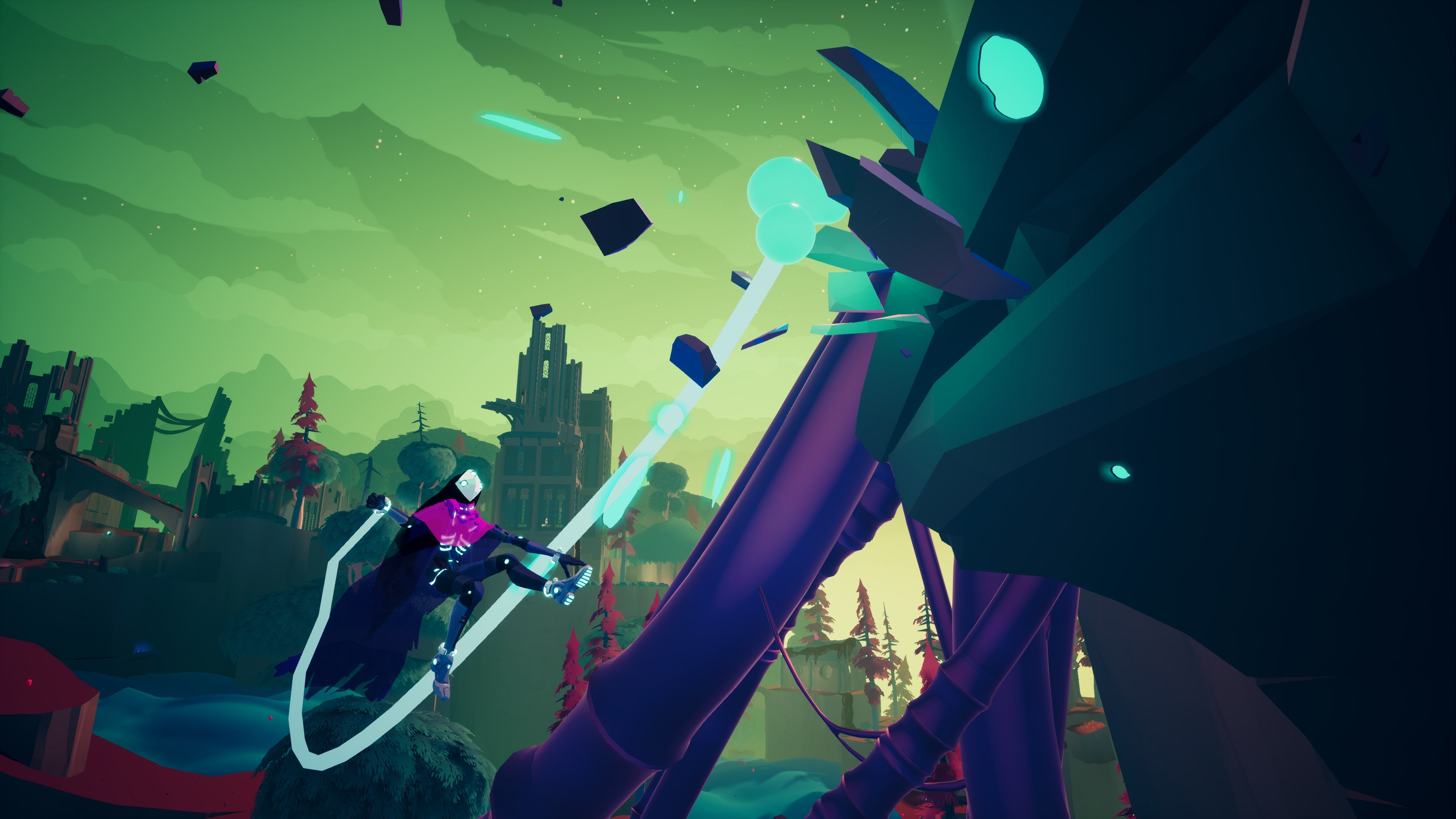
There are no intrusive markers telling you where to go, and there's next to no tutorializing. Solar Ash doesn't need it. New challenges are introduced smartly – first in a controlled environment, then with ramping complexity and stakes. Slow time mid-air to extend your grapple range, deliver these color-coded spores before they time out, don't touch the green acid for too long, don't touch the lava at all. Mechanics and hazards combine and elevate each other without overcomplicating things. The core verbs are emphasized, never muddled.
This clean design shines in fights with the Remnants, towering behemoths reminiscent of Shadow of the Colossus, that stalk each world. You skewer void marks all over the landscape to weaken them, then scale them to attack exposed nerves with Rei's needle-like lance, each assault a tight time trial of its own. It's hard to oversell the rush of a breakneck sprint along a titan's body, nimbly piercing weak points as you jump between plates of bone. By the time you reach the boss of each area, you'll find you've already learned how to take it down after exploring the environment. The timing, the tricks, the openings – you learn to see the lines without being told. The visual language is so strong that it dyes your neurons. It's magic – doubly so given this is Heart Machine's first 3D game. It just feels correct, and it feels good.
Come on in, the void is fine
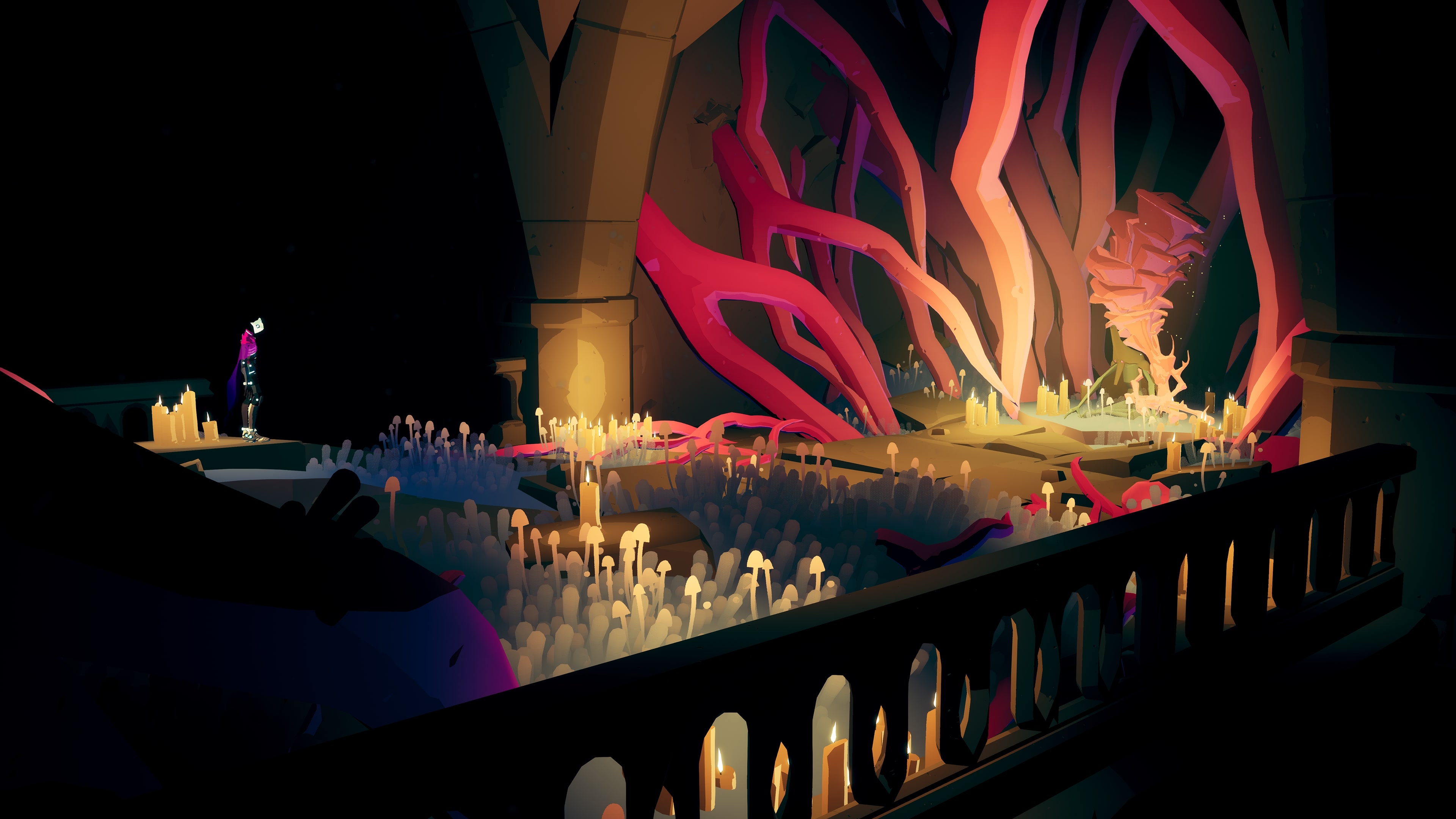
The backdrop to this thrill ride is contrastingly somber, and at times sharply relevant. The Ultravoid is an unfathomable pit where time and space go to die, but as you explore the fractured worlds spat out by this vortex of dark matter, you find that a black hole wasn't the only danger these planets and their people faced. Rei herself laments that the leaders of her homeworld wasted valuable time arguing about how to address the Ultravoid problem until the only option they had was the worst-case scenario. Later, you explore a planet which was ruined by corporate pollution long before it was devoured by the void. Stop me if this sounds familiar.
The tragedy of the Ultravoid is enormous – as the diary of one traveler puts it, it's something a god would struggle to process, let alone one person. So it's often the smaller stories buried here that cut deepest. It's one thing to gawk incredulously at the loss of an entire civilization, but another to personally witness and unpick the looping sorrow of a widow lost to time. Traces of Rei's fellow Voidrunners also frame some of the most interesting snippets. The promise of new suits initially convinced me to hunt for Voidrunner caches, but as I found newer suits more and more forgettable – I'll stick with the better boost, thanks – it was the diary entries, enlivened by some excellent voice work, that kept me searching.
I especially looked forward to post-boss fight encounters with the mysterious astral figure named Echo. Her withering criticism and foreboding advice kept me guessing right up till the ending, which hit pretty hard despite being heavily foreshadowed. I'm very tempted to play through again, both to annihilate my initial play time of roughly 10 hours – relatedly, I can't wait to see what speedrunners do to this game, and neither can Heart Machine – and to see how a different climactic choice may affect the ending. I'm certainly not tired of Solar Ash. Hell, I don't know if I could get tired of it. It is ceaseless, distilled fun – the best type of game.
Reviewed on PS5. Code supplied by Heart Machine.
More info
| Genre | Platformer |

Austin has been a game journalist for 12 years, having freelanced for the likes of PC Gamer, Eurogamer, IGN, Sports Illustrated, and more while finishing his journalism degree. He's been with GamesRadar+ since 2019. They've yet to realize his position is a cover for his career-spanning Destiny column, and he's kept the ruse going with a lot of news and the occasional feature, all while playing as many roguelikes as possible.
